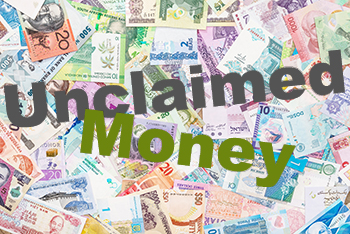
Payroll departments get involved in unclaimed property because they deal with significant quantities of payroll, benefit, and expense checks, which can all become escheatable. That’s why U.S. payroll professionals tend to know all about the recent whirlwind surrounding domestic unclaimed property laws, which are usually complicated—and sometimes controversial.
Massive dollar amounts represented by unclaimed property in some companies, as well as the potential for significant interest and penalties for failing to report or remit unclaimed property, make this an especially important consideration for payroll departments in large organizations.
Unclaimed property is further complicated when a U.S. organization deals with property involving owners, transactions, and intangible financial instruments in foreign countries. It’s tempting to get so focused on domestic accounts that potential issues associated with foreign accounts are overlooked. Sometimes it doesn’t come up until, for example, an acquisition audit uncovers previously undisclosed foreign unclaimed property.
To avoid surprises, organizations with foreign ties are well-advised to stay informed about unclaimed property developments throughout the world. This article provides general advice for management of foreign unclaimed property, as well as basic information about the current state of applicable laws in some of foreign countries with the most unclaimed property today.
Foreign Unclaimed Property’s Footprint
An unclaimed property holder is an organization with possession of money, checks, or other intangible property that has been abandoned or lost by a customer, employee, or other entity or person. Foreign unclaimed property situations arise when a holder, payee, or both reside in a foreign country. As Global Payroll reported in March 2016, there are three basic types of foreign unclaimed property:
- Domestic-to-foreign—The holder is located in the United States, and the payee or his/her bank is located in a foreign country. This is the most common type of foreign unclaimed property. In most cases, the U.S. holder must follow U.S. laws dictating reporting and escheatment of property.
- Foreign-to-domestic—A holder is located outside of the United States and pays a person living in the United States. Legislatures in a payee’s state of residence or holder’s state of incorporation may or may not be able to compel a foreign organization to report and/or escheat money to a U.S. state.
- Foreign-to-foreign—Both the holder and payee are located in a foreign country. In most cases, this type of unclaimed property situation will not affect a U.S. holder.
In any unclaimed property situation with a foreign element, a company should consult attorneys or unclaimed property consultants to determine which jurisdiction to report and remit to—and whether international law will come into play. It’s not unheard of for more than one jurisdiction to claim the same property.
In addition to keeping on top of applicable laws, payroll personnel and others throughout an organization must create methods of identifying and monitoring stale-dated properties that contain any foreign element (along with domestic properties). Statutory due diligence must be completed to find missing owners, reports must be prepared, and payments must be made to applicable jurisdictions. It might even fall to payroll departments to help identify and resolve fraud when criminals attempt to claim someone else’s property.
From a broader perspective, it’s advisable for organizations to continually minimize liabilities and exposure to unclaimed property noncompliance issues, both foreign and domestic. This might involve making changes to data management systems, fine-tuning policies, setting up a task force, or consulting with attorneys and unclaimed property professionals to streamline reporting and escheatment while ensuring accuracy.
Foreign unclaimed property regulations tend to be less numerous and specific than pervasive, detailed unclaimed property laws in the United States. Foreign laws may encompass fewer property types subject to escheatment; enforcement may be limited; and unclaimed property reporting may even be nonexistent or optional. For example, U.S. state laws govern many different types of property, whereas Canadian provinces require reporting and escheatment of many fewer property types.
Find Foreign Unclaimed Property Here
Any payroll transaction or obligation where a foreign holder or property owner is involved could result in foreign unclaimed property. The same goes for any other department. However, because uncashed checks or unreconciled transactions are common types of unclaimed property, payroll often works with other interested parties and departments to establish organization-wide policies and processes for all unclaimed property.
Payroll departments find unclaimed property (including the foreign variety) in these common areas, among others:
- Uncashed paychecks
- Bonuses
- Cost-of-living adjustment (COLA) payments
- Educational reimbursements
- Share distributions
- Commission checks
Current Unclaimed Property Laws in Foreign Countries
International government entities are becoming increasingly aware of the need to regulate unclaimed property. Some countries may have heard about the financial benefits certain U.S. states have gained from escalating unclaimed property enforcement and want this benefit for themselves.
To create their own unclaimed property laws, several countries are using U.S. laws as a guide–specifically the most recent Revised Uniform Unclaimed Property Act (RUUPA) drafted by the Uniform Law Commission (ULC) in late 2016, as well as previous versions of that act. However, because all jurisdictions or countries have the freedom to create laws of their own, foreign unclaimed property laws can be as challengingly varied as U.S. unclaimed property laws are among the states. Foreign countries typically have focused on regulatory escheatment requirements in the areas of banking, securities, stocks/dividends, and insurance.
Below is a brief overview of unclaimed property laws in a variety of countries where U.S. organizations frequently do business:
Canada—Federal
- Federal law: Canadian federal law
- Who must report: federally chartered banks only
- Reportable property types: dormant bank accounts and financial instruments such as certified checks, bank drafts, and others.
- Federal custodian: Bank of Canada, then Receiver General of Canada
- Bank of Canada for more information
Alberta
- Law: Unclaimed Property and Vested Property Act, 2008; most similar to U.S. laws; various rules identifying holders, reportable property types, exemptions, and dormancies;
- Law: Unclaimed Property Act, 2000; mandatory and voluntary types of holders, property types vary
- Law: has been working on new legislation, but the outcome is still uncertain
- Manitoba: Escheats Act and Vacant Property Act–no formal reporting mechanism
- Nova Scotia: Public Trustee Act–estates only
- Prince Edward Island: Public Trustee Act–administered by the public trustee
- Saskatchewan: Public Guardian and Trustee Act–property of intestate and incompetent persons
Australia—Federal
- Federal laws: Banking Act (1959)—amended; see written law for specifics; Life Insurance Act (1995); Corporations Act (2001)
- Recent legislation: Banking Amendment (Unclaimed Money) Act (2013)
- Shortened dormancy periods for most property types from 7 to 3 years
- Reportable unclaimed property: includes dormant bank accounts, credit union and building society accounts, insurance policies, company shares, lottery prizes, company deregulation proceeds
- Australian Security and Investments for more information
Australia—States and Territories
New Zealand
- Law: Unclaimed Money Act (1971); other applicable laws covering public finance, companies, public trust, and superannuation; trust monies governed by various trustee acts
- Reportable property types: deposit accounts, wage and employee benefits, life insurance benefits, any other unclaimed money totaling minimum of $100
- Who must report: companies incorporated in New Zealand, companies doing business in New Zealand, any liquidator or receiver of any such company
- Dormancy: 6 years for deposit accounts
- The Treasury more information
United Kingdom
- Laws: no federal law governing all countries in the U.K.; for England, Dormant Bank and Building Society Accounts Act (2008) and English common law; separate laws in Scotland, Wales, Guernsey, Jersey, and Ireland
- Reportable property types: unclaimed financial instruments
- UK Government for more information
Caribbean Countries
- Laws: specific laws for Antigua, Bahamas, Barbados, British Virgin Islands, Cayman Islands, St. Lucia, Trinidad and Tobago
- Reportable property types, dormancy, due diligence, and aggregate limits vary by country
- Who must report: mostly financial institutions
- Due diligence reporting: most countries require publication of notices in the region’s newspaper, the Gazette, within 60 days of the end of each financial year
- Cayman National Bank more information
Kenya
- Law: Unclaimed Financial Assets Act (2011)—modeled after U.S. regulations
- Reportable property types: include savings and deposit accounts, safe deposit box contents, cash dividend checks, unclaimed shares of stock, insurance, and retirement benefits, stocks and bond proceeds, etc.
- Penalties: 25% of the asset value, plus other penalties and fines
- Unclaimed Financial Assets Authority more information
This list provides a place to start learning about and keeping up with foreign unclaimed property laws. Other countries have general laws containing abandoned and unclaimed property sections. If your organization conducts business in specific countries, research laws in those countries so you’ll be prepared.
Keep in mind that unclaimed property laws both within and outside of the United States are in a constant state of flux. Don’t assume a country doesn’t have applicable laws if they aren’t on this list, and be sure to check for updates in the laws cited here if you find yourself addressing an unclaimed property situation in any one of these countries.

Heather Steffans is VP, Strategic Compliance Solutions at MarketSphere, and is an expert in unclaimed property planning. Steffans is Co-Chair of the Professional Development committee in the Unclaimed Property Professional Organization. Previously she has served on the Membership and Communication Committees and received the Presidential Award in 2010. Learn more about unclaimed property in MarketSphere’s Knowledge Vault at www.unclaimedpropertyspecialists.com.